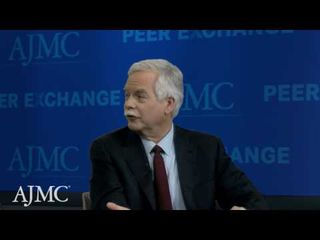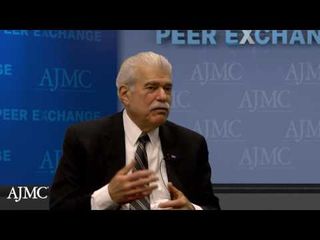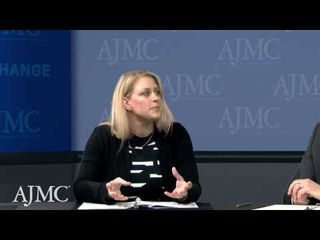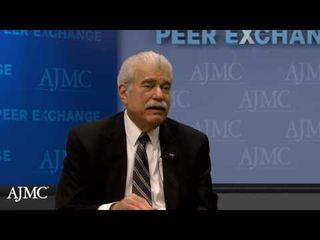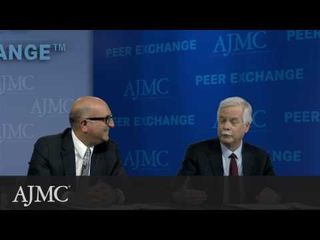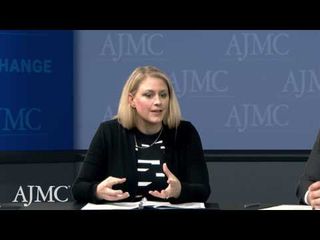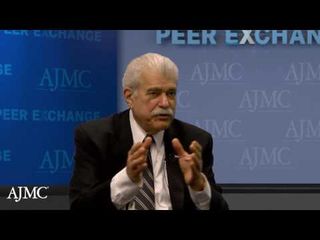
Value-Based Care
Latest News

Latest Videos

CME Content
More News

Physician migration from physician-led practices to hospital employment has shifted. While physicians working for a hospital or in a practice with some ownership increased by 32.6% in 2016, independent and physician led group practices reached 72% in 2017, according to a new Black Book report.

So far, the move to accountable care has been promising, but more needs to be done to encourage providers into risk, said panelists at The American Journal of Managed Care®’s Accountable Care Delivery Congress.

The authors write that these differences among Veterans Affairs (VA) populations could reflect variability across the medical centers in terms of quality of care, adherence to evidence-based treatment and screening guidelines, access to urgent care, posthospitalization care protocols, chronic disease management, and access to specialty care, social work services, and behavioral health care.

Employers may be intimidated by the idea of purchasing healthcare, but they are getting more involved in it and they are in a position to transform the market and promote value-based care, said Suzanne Delbanco, PhD, MPH, executive director of Catalyst for Payment Reform, during her keynote at The American Journal of Managed Care®’s Accountable Care Delivery Congress.

Coverage of our peer-reviewed research and news reporting in the healthcare and mainstream press.

Reducing specialty leakage is promoted as crucial for accountable care organizations (ACOs). This study finds that Medicare ACOs had modest reductions in specialty use and minimal changes in leakage.

With most accountable care organizations (ACOs) continuing to participate in the upside-only track, the Medicare Shared Savings Program has not netted the savings that the Congressional Budget Office estimated in 2010. But some findings indicate the program will see greater savings as more ACOs transition to the downside-risk tracks and gain more years of experience.

Every week, The American Journal of Managed Care® recaps the top managed care news of the week, and you can now listen to it on our podcast, Managed Care Cast.

This week, the top managed care stories included changes to the Next Generation ACO Model caused 7 accountable care organizations to leave the model; a report highlights how quickly hospital acqusition of physician practices is occurring; CMS finalizes coverage for Next-Generation Sequencing tests.

Patients with acute myeloid leukemia (AML) who were treated at a National Cancer Institute-designated cancer center had a 53% lower risk of early mortality, according to a study published in Cancer.

Panelists Kavita Patel, MD, Brookings Institute; Michael E. Chernew, PhD, Harvard Medical School; and Katy Spangler, Spangler Strategies discussed implementing the value-based insurance design concept in health policy and payment models, challenges with quality measurements, the role of employers in value-based care, and more at the VBID Summit, held March 14 by the University of Michigan Center for Value-Based Insurance Design.

At the Association of Community Cancer Center’s 44th Annual Meeting & Cancer Center Business Summit, March 14-16, 2018, in Washington, DC, payer and physician representatives shared the stage with the president of a cancer foundation that is striving to break the barriers that prevent easy healthcare information exchange and access to cancer care.

Overview of alternative payment models and how leading national organizations are involved with linking quality improvement initiatives and payment reform.

Coverage of our peer-reviewed research and news reporting in the healthcare and mainstream press.

This study examined patient clinical and demographic characteristics, healthcare system factors, and patients’ experiences of care associated with 30-day readmissions in a hospital with a Pioneer Accountable Care Organization.

A discussion of chronic pain prevalence, care obstacles, and potential opportunities for care improvement within the accountable care organization context at University of California, San Francisco Health.

Positive quality interventions are part of a nationwide effort to standardize and improve oncology dispensing practices. They are best practices that are meant to be highly specific to a drug and help pharmacies and clinicians ensure that a patient-centric model exists, explained speakers during a workshop at National Community Oncology Dispensing Association (NCODA) Spring Forum 2018.

Coverage of our peer-reviewed research and news reporting in the healthcare and mainstream press.

In a joint letter, several organizations urged CMS Administrator Seema Verma to allow certain accountable care organizations to continue in the Medicare Shared Savings Program (MSSP) Track 1 for a third agreement period, warning that these ACOs are not ready to take on a 2-sided risk.

Aledade and Horizon Blue Cross and Blue Shield of New Jersey partner to help practices take advantage of payment models that reward physicians who offer better quality care while lowering costs.

On Friday, a bipartisan group of governors unveiled a blueprint to reform the US health system in an effort to produce better health outcomes at a lower cost to governments, employers, and individuals. The plan focuses on aligning consumer and provider incentives, encouraging more competition and innovation, reforming insurance markets, expanding proven Medicaid innovations, and modernizing the state–federal relationsip.

Coverage of digital technology updates from Patient-Centered Oncology Care, November 16-17, 2017.

Patient-reported outcomes can be critically important, said Justin Bachmann, MD, MPH, FACC, instructor of Medicine and Health Policy at Vanderbilt University Medical Center.

A symposium at Seton Hall Law School examined the role of care coordination and transitions in helping those with substance use disorder find success in treatment. Some experts say that managed care has not supported care coodination despite evidence that it works and ultimately saves money for health systems.

A new National Bureau of Economic Research working paper identified potential hospital cost shifting and that hospitals penalized by the Hospital Readmission Reduction Program and the Hospital Value-Based Purchasing Program actually had an increase in average payments of 1.5%.


